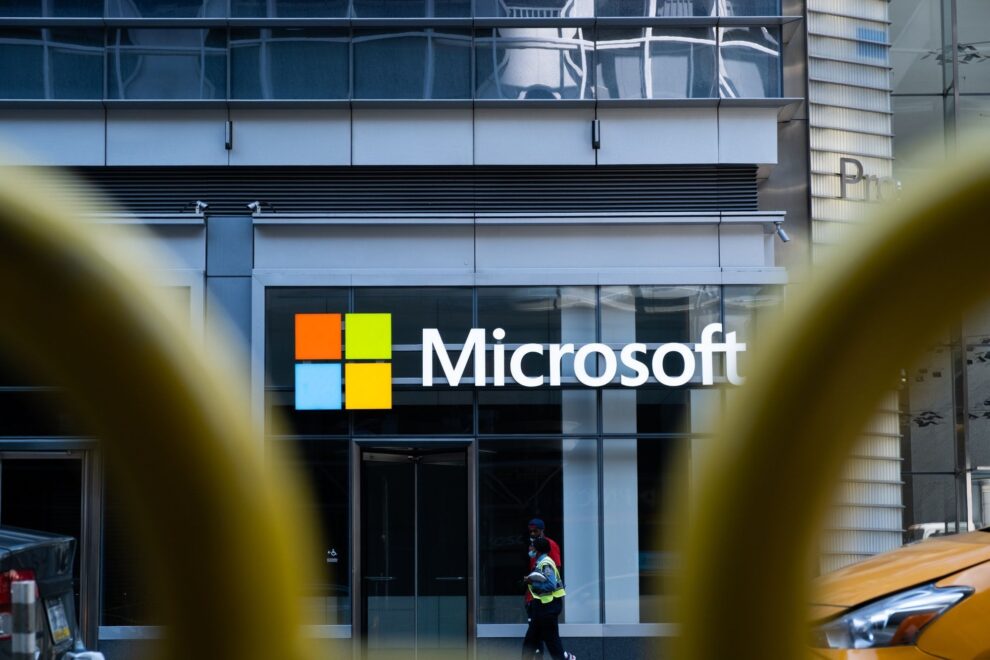(Bloomberg) -- Microsoft Corp. is urging customers to download software patches after state-sponsored hackers based in China broke into some customers’ copies of its software for email, contacts and calendar using multiple previously undiscovered flaws.The attackers used the vulnerabilities to hack into Microsoft Exchange Server, allowing them to break into email accounts and install malware to “facilitate long-term access to victim environments,” Microsoft said Tuesday.Microsoft released patches for the flaws in a blog post announcing the attack. “Microsoft has detected multiple 0-day exploits being used to attack on-premises versions of Microsoft Exchange Server in limited and targeted attacks,” the blog said.Previously undiscovered vulnerabilities are known as zero days, and they are valuable to hackers because there aren’t defenses against them -- at least until they are discovered and patches are created.“We are sharing this information with our customers and the security community to emphasize the critical nature of these vulnerabilities and the importance of patching all affected systems immediately,” the company said. It added that on-premise systems were affected but the online version of Exchange wasn’t.The hackers responsible are “a group assessed to be state-sponsored and operating out of China,” according to the blog. They typically target “entities in the United States across a number of industry sectors, including infectious disease researchers, law firms, higher education institutions, defense contractors, policy think tanks, and NGOs.”Chinese Foreign Ministry spokesman Wang Wenbin said in a regular press briefing Wednesday in Beijing that conclusions on hacks into Microsoft servers should be based on complete evidence and avoid wanton accusations.(Updates with comment from China’s Foreign Ministry.)For more articles like this, please visit us at bloomberg.comSubscribe now to stay ahead with the most trusted business news source.©2021 Bloomberg L.P. Read More...

(Bloomberg) — Microsoft Corp. is urging customers to download software patches after state-sponsored hackers based in China broke into some customers’ copies of its software for email, contacts and calendar using multiple previously undiscovered flaws.
The attackers used the vulnerabilities to hack into Microsoft Exchange Server, allowing them to break into email accounts and install malware to “facilitate long-term access to victim environments,” Microsoft said Tuesday.
Microsoft released patches for the flaws in a blog post announcing the attack. “Microsoft has detected multiple 0-day exploits being used to attack on-premises versions of Microsoft Exchange Server in limited and targeted attacks,” the blog said.
Previously undiscovered vulnerabilities are known as zero days, and they are valuable to hackers because there aren’t defenses against them — at least until they are discovered and patches are created.
“We are sharing this information with our customers and the security community to emphasize the critical nature of these vulnerabilities and the importance of patching all affected systems immediately,” the company said. It added that on-premise systems were affected but the online version of Exchange wasn’t.
The hackers responsible are “a group assessed to be state-sponsored and operating out of China,” according to the blog. They typically target “entities in the United States across a number of industry sectors, including infectious disease researchers, law firms, higher education institutions, defense contractors, policy think tanks, and NGOs.”
Chinese Foreign Ministry spokesman Wang Wenbin said in a regular press briefing Wednesday in Beijing that conclusions on hacks into Microsoft servers should be based on complete evidence and avoid wanton accusations.
(Updates with comment from China’s Foreign Ministry.)
For more articles like this, please visit us at bloomberg.com
Subscribe now to stay ahead with the most trusted business news source.
©2021 Bloomberg L.P.
Read More







